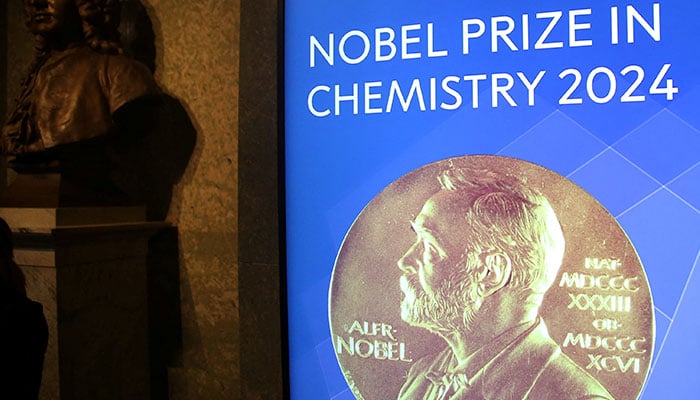
STOCKHOLM: Americans David Baker and John Jumper, together with Briton Demis Hassabis, shared the Nobel Prize in Chemistry on Wednesday for work revealing the secrets of proteins through computing and artificial intelligence.
The three were honoured for cracking the code of the structure of proteins, the building blocks of life, with the jury hailing their work as holding "enormous potential" in a range of fields.
Biochemist Baker, 62, was given half the award "for computational protein design", while Hassabis and Jumper shared the other half "for protein structure prediction," the Nobel committee said.
"David Baker has succeeded with the almost impossible feat of building entirely new kinds of proteins," it said in a statement.
In the early 2000s, Baker created a new protein, dubbed Top7, which was entirely different to all known existing proteins.
The Nobel jury described it as a "bolt from the blue" for researchers working in the field of protein design, as those previously created had only been able to imitate existing structures.
It added that his work has led to the creation of proteins that can "lead to new nanomaterials, targeted pharmaceuticals, more rapid development of vaccines, minimal sensors and a greener chemical industry".
Hassabis and Jumper developed an AI model "to solve a 50-year-old problem: predicting proteins' complex structures," the jury said of the pair from AI research lab Google DeepMind — which rose to prominence when its AlphaGo model beat the champion of one of the world's oldest board games Go.
Building blocks
Hassabis, the 48-year-old Google DeepMind CEO and co-founder, and senior research scientist Jumper, who was born in 1985, were among those speculated to be contenders for this year's Nobel for their work on the AI-model AlphaFold.
They received the prestigious Lasker Award in 2023.
The AI tool is used to predict the three-dimensional structure of proteins based on their amino acid sequence, and the AlphaFold database now contains the predicted structure of over 200 million proteins.
Mitigate AI risks
Hassabis said he was really excited about "all the ways in which protein design can now make the world a better place," while listing areas such as health, medicine as well as technology and sustainability.
"Our new AI methods are much more powerful than our previous traditional scientific model methods," he said.
At a London press conference, Hassabis said he had spent his whole life working on AI and "dreaming for this kind of impact of things like AlphaFold, where we can use it for the benefit of society."
"I've always known and felt that it would be one of the most transformative technologies in human history, probably," Hassabis said.













